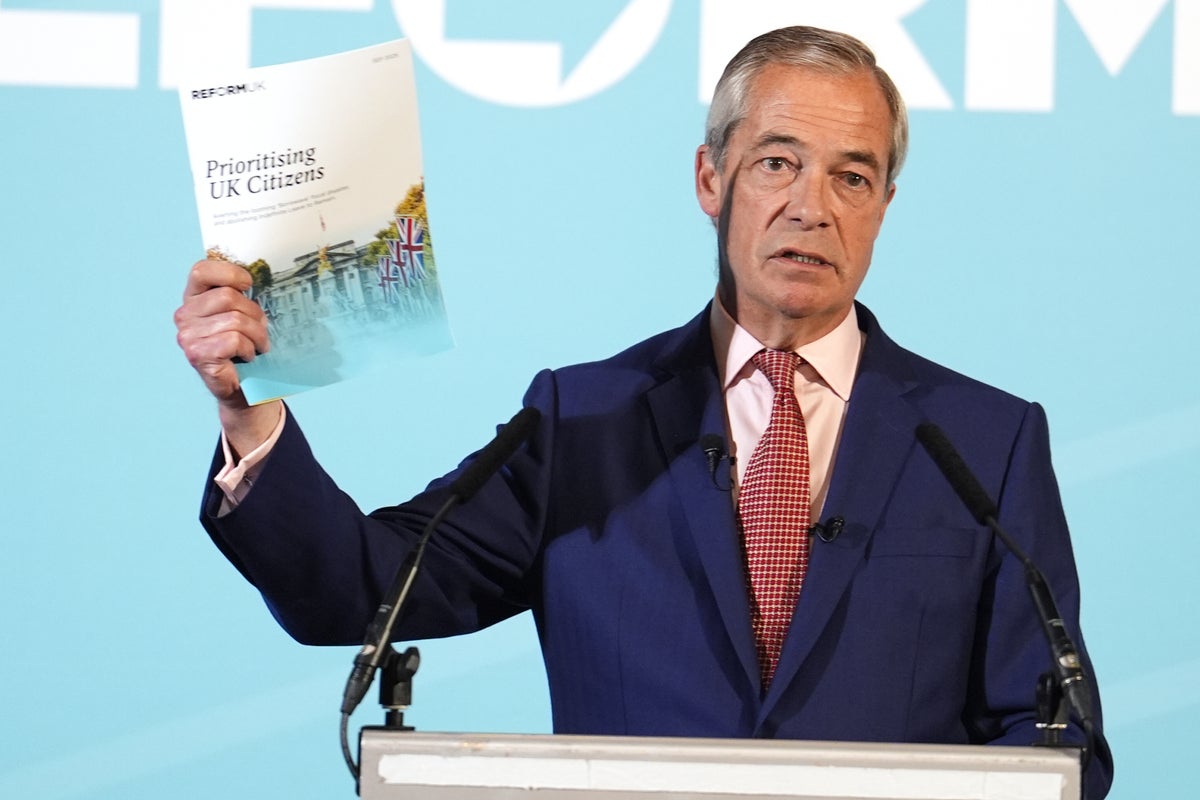Reform UK's Immigration Plan: Scrapping Indefinite Leave to Remain Sparks Controversy
Reform UK, led by Nigel Farage, has announced plans to abolish indefinite leave to remain (ILR) for immigrants in the UK, potentially affecting hundreds of thousands of people. The proposal has been met with criticism and raises questions about its legality, economic impact, and broader implications for British immigration policy.
What is Indefinite Leave to Remain?
Indefinite leave to remain (ILR) grants immigrants the right to live, work, and study in the UK permanently, typically after five years of legal residency. It is a key step towards obtaining British citizenship and allows access to certain benefits.
Reform UK's Proposed Changes
Reform UK's plan would replace ILR with a five-year renewable work visa system, requiring migrants to reapply and meet stricter criteria. Key elements of the plan include:
- Scrapping ILR for both new and existing residents.
- Higher salary thresholds for visa applications (reportedly £60,000).
- Demonstrated advanced English language skills.
- Restrictions on family members joining visa holders.
- Increased residency requirements for citizenship (seven years).
- Barring non-British citizens from accessing welfare benefits.
Farage's Justification and Claims
Nigel Farage claims the policy aims to target the "Boris-wave" – the influx of legal immigrants following Brexit – and prevent them from becoming a burden on the state. He argues that the current system is unfair and that the changes would save the UK £234 billion. However, this figure is disputed, as the Centre for Policy Studies (CPS), the source of the estimate, has since withdrawn its support, stating that the underlying data should no longer be used.
Criticism and Opposition
The proposal has faced widespread criticism from various groups, including:
- Migration charities: Organizations like Praxis warn that the plan would disrupt the lives of millions of legal residents and harm the economy.
- Think tanks: Experts question the economic viability and ethical implications of revoking settled status.
- Care industry: The National Care Association warns of potential labor shortages in the care sector.
- Political opponents: Labour, the Liberal Democrats, and the SNP have all condemned the plan as unworkable, divisive, and based on flawed data.
Opponents argue that the policy would create uncertainty for families, disrupt businesses, and undermine the notion of belonging in the UK. Concerns have also been raised about the potential impact on refugees and those who came to Britain under government schemes, such as individuals from Hong Kong and Ukraine.
The Potential Impact
If implemented, Reform UK's policy could have significant consequences for a large segment of the UK population. According to the Migration Observatory at the University of Oxford, approximately 430,000 non-EU citizens held indefinite leave to remain at the end of 2024. The uncertainty surrounding the status of these individuals, along with the potential for mass deportations, has generated widespread anxiety and concern.
Government and Other Party Responses
The government has distanced itself from Reform's plan, with Chancellor Rachel Reeves stating that the proposed savings "have no basis in reality." Labour has also announced plans to introduce stricter requirements for indefinite leave to remain, although not as drastic as Reform's proposals.
Contradictory claims and messaging surrounding the policy
There have been conflicting messages, with Farage stating that welfare will be reserved for UK citizens only, whereas Zia Yusuf, Reform UK’s head of policy, clarified that the policy will not apply to 4.12million EU citizens with settled status. This would only impact non-EU migrants with indefinite leave to remain and call into question the £234 billion savings projection.
The long-term implications of Reform UK's immigration plan remain uncertain, but the debate it has ignited highlights the ongoing challenges and complexities of managing immigration in the UK. The proposals are likely to face legal challenges and significant opposition if the party were to gain power.
 Visit the website
Visit the website






